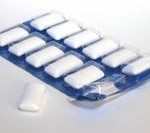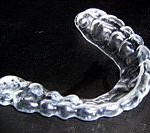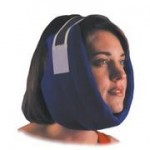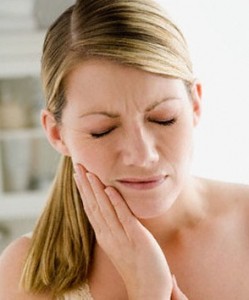TMJ pain can cause soreness and complex problems in the jaw area. TMJ represents the temporomandibular joint that is found in the front of the ear on both sides of the head where the upper jaw and lower jaw meets.
What is TMJ Pain?
TMJ pain is normally felt in the temporomandibular joint. Normally, in the TMJ area, there are moving parts that allows the person to open and close the upper jaw and the lower jaw. This part of the body permits the person to chew food, talk and yawn. This is considered one of the most used joint in the body and any pain in the area may prove to be difficult and bothersome.
It can be difficult to have pain in the temporomandibular joint as it may affect the way a person talk and chew his food.
Generally, TMJ pain can be treated with medicines, dental or surgical procedures.
What are the Causes of TMJ Pain?
Muscles and joints technically work hand in hand to function properly but when one problem is present with either one of them, pain may arise. In the case of TMJ pain, headaches, ear pain and bite problems can result from TMJ disorder.
Some known causes of TMJ pain may include:
- Teeth clenching or bruxism increases pressure on the lining of the cartilage in the temporomandibular joint area. People who have this kind of habit are not usually aware of teeth clenching as it usually happens when they are sleeping. Most of the time, people who grind or clenched their teeth may wake up with jaw pain.
- Misalignment of the disk in the jaw area may lead to TMJ pain.
- Â Dental problems can also cause TMJ pain. Patients with TMJ often observe that they may have hard time biting before TMJ develops. One-sided biting may also lead to TMJ pain.
- Habitual biting of the nails may also cause TMJ pain. It is a very unhealthy practice biting your fingernails and aside from hygiene issues, another reason why it should be stop is because it can lead to serious TMJ pain.
- Arthritis can cause TMJ pain. A person with arthritis may feel soreness in the jaw area.
- Stress is also another factor that can cause TMJ pain. When a person is under stress, he may have unnecessary behaviors like teeth grinding and clenching which can lead to TMJ disorder
- Accident or trauma that severely affects the jaws can also cause TMJ problems.
What are the Symptoms of the TMJ Pain?
Severity of the symptoms of TMJ pain may vary from one patient to another. Some symptoms of the TMJ pain are:
- Soreness in the jaw area
- Pain around the ear
- Uncomfortable feeling when biting
- Pain when chewing
- Jaw locked or pain while opening and closing the mouth
- Headache
- Uneven bite
What are the Treatments for TMJ Pain?
1. Medications
  Medications are normally given to ease the TMJ pain. Part of the medications are muscle relaxants to help ease the pain, antidepressants may also be given and painkillers to relieve the TMJ pain.
Medications are normally given to ease the TMJ pain. Part of the medications are muscle relaxants to help ease the pain, antidepressants may also be given and painkillers to relieve the TMJ pain.
Â
2. Botulinum toxin
  Botulinum toxin or much commonly known as Botox may also be injected to the jaw muscles in order to relieve pain when chewing food.
Botulinum toxin or much commonly known as Botox may also be injected to the jaw muscles in order to relieve pain when chewing food.
Â
3. Bite guard
 Your dentist may advise you to wear bite guard if you are grinding your teeth when you are sleeping. Bite guard is a soft device that can be inserted over the teeth. This protects your teeth when you are teeth grinding. However, caution is recommended if you have sleep apnea disorder because bite guard may worsen your sleep apnea symptoms.
Your dentist may advise you to wear bite guard if you are grinding your teeth when you are sleeping. Bite guard is a soft device that can be inserted over the teeth. This protects your teeth when you are teeth grinding. However, caution is recommended if you have sleep apnea disorder because bite guard may worsen your sleep apnea symptoms.
4. Cognitive Behavioral Therapy
 Cognitive behavioral therapy may be recommended to people if the cause of TMJ pain is stress related. This therapy may teach a person to have relaxation techniques and how to manage stress effectively.
Cognitive behavioral therapy may be recommended to people if the cause of TMJ pain is stress related. This therapy may teach a person to have relaxation techniques and how to manage stress effectively.
5. Surgery
 Surgery is the last option for TMJ pain. Doctors are divided upon the necessity of surgery to TMJ pain. Most doctors do not agree with surgery and they will normally recommend other options before trying surgery.
Surgery is the last option for TMJ pain. Doctors are divided upon the necessity of surgery to TMJ pain. Most doctors do not agree with surgery and they will normally recommend other options before trying surgery.
6. Heat or Cold therapy
  Applying heat pads or cold ice pack may help in relaxing the muscles surrounding the area. This may also ease soreness and pain.
Applying heat pads or cold ice pack may help in relaxing the muscles surrounding the area. This may also ease soreness and pain.
Â
7. Yoga
  Yoga can help ease tension and manage any stress that may cause or worsen the presence of TMJ pain.
Yoga can help ease tension and manage any stress that may cause or worsen the presence of TMJ pain.
TMJ pain may be bothersome but there are possible treatments that may help to alleviate pain. See a doctor immediately if you feel pain in the jaw area, to rule out other serious health conditions.
